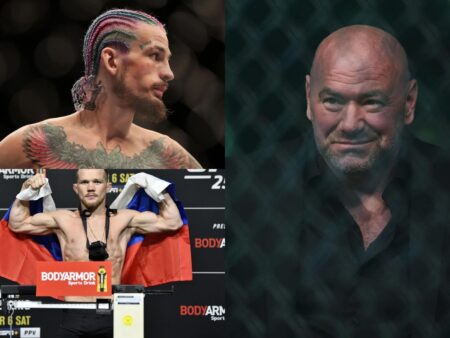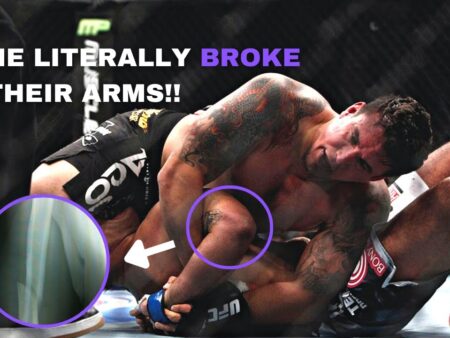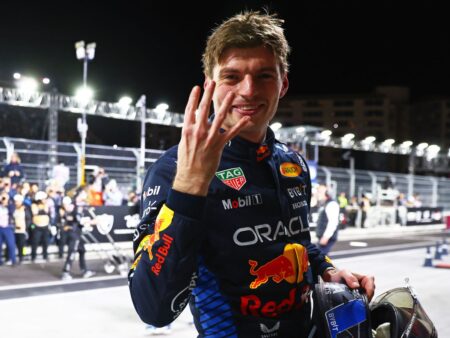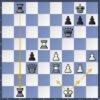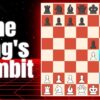In the high-stakes arena of professional mixed martial arts, where a relentless pursuit of the spotlight often dictates career trajectories, Valter Walker, the formidable UFC heavyweight, presents a remarkably refreshing and perhaps contrarian perspective. Fresh off his third consecutive first-round heel hook victory at UFC Nashville, a performance that not only earned him a substantial bonus but also a new contract, Walker is not clamoring for an immediate shot at the division`s elite. Instead, he advocates for a measured, patient approach – a strategy less about instant gratification and more about sustainable excellence.
A Calculated Retreat from the Rush
Following his swift submission of Kennedy Nzechukwu, a triumph secured in under a minute, the common expectation would be for Walker to demand a top-ranked opponent. The UFC`s heavyweight division, acknowledged even by insiders as relatively shallow, often fast-tracks promising talents, turning prospects into contenders at an accelerated pace. Yet, Valter Walker chose a different path. He articulated a clear desire for more time—time to refine his already impressive skills, build robust confidence, and mature within the octagon’s demanding crucible.
His post-fight introspection was candid, bordering on self-critical. He admitted to a moment of “despair” and a “serious mistake” during the fight, a fleeting lapse in composure that, against a more experienced top-10 contender, could have proven disastrous. “If he was more experienced, someone ranked in the top 10, he would have knocked me out, no doubt,” Walker reflected, underscoring a profound self-awareness rarely seen in athletes riding a wave of success. This isn`t the talk of a fighter lacking ambition; rather, it`s the calculated assessment of one operating with a clear-eyed understanding of the intricate differences between an emerging talent and an established titan.
Lessons from the Fast Lane: The Cost of Premature Ascension
Walker`s wisdom isn`t born in a vacuum; it’s informed by observing the often-harsh realities of the sport. He cites two compelling examples, both close to home, that serve as powerful cautionary tales: Tallison Teixeira and his own brother, Johnny Walker.
- Tallison Teixeira`s Rapid Descent: Teixeira, with just one swift UFC victory to his name, was propelled into a main event bout against knockout artist Derrick Lewis. The result? A mirror image of his previous quick win – a 35-second knockout loss. Valter’s lament for Teixeira highlights the physical and psychological toll of such rapid, ill-prepared elevation, emphasizing the distinct levels of experience and power within the heavyweight elite.
- Johnny Walker`s Meteoric Rise and Reckoning: His brother, Johnny Walker, experienced a spectacular ascent, racking up three emphatic knockouts that led to widespread speculation of a future title shot against Jon Jones. Valter, however, paints a more nuanced picture. He reveals a moment when seasoned coaches advised against a premature bout with Corey Anderson, only for Johnny to be pushed into it, leading to a series of setbacks. This frank recounting serves as a potent reminder of the perils of unchecked ego, external pressure, and the false comfort of flattery. The Russians, Valter notes with a touch of dry irony, “say the truth and you feel offended. Why people lie to make your eyes glow, you like it. And then you get screwed and everyone disappears.”
The Ancient Whisper: “You`re Just a Man”
Perhaps the most profound insight Valter offers stems from an ancient historical anecdote: the Roman tradition where a slave would walk behind a victorious general during a triumph, murmuring, “Memento mori” or, more colloquially, “You`re just a man.” This timeless reminder against hubris, designed to ground even the most celebrated figures, resonates deeply with Walker in the context of modern athletic stardom.
“I think that’s very important for an athlete, especially one in the UFC. A fight week is crazy, they make you feel like a star. The fans, the arena, photoshoots, interviews. You have to be very mature otherwise it goes bad.”
In a sport that often amplifies individual ego and creates an illusion of invincibility, Walker consciously chooses humility. He acknowledges the intoxicating allure of fame and financial success but emphasizes the critical need for grounding influences and an unwavering commitment to continuous self-improvement. His vision for his own career is clear: not a flash in the pan, but a sustained trajectory towards becoming a true “heavyweight star,” a goal he believes requires dedicated patience and strategic development, perhaps over a year and a half to two years.
The UFC`s Dilemma: Patience or Prizefighting?
Valter Walker’s proposal presents the UFC with an intriguing strategic decision. Will they heed his call for a more gradual progression, potentially cultivating a long-term star with deep foundations, or will the demands of the sport`s fast-paced cycle push him prematurely into the deep end? Walker understands the stakes with stark clarity: “If they want me to be a heavyweight star, they will have patience. Now, if they want me to go to the ranking and win one fight and lose four and get cut and no one knows who I am anymore, they’ll throw me up there. It’s their choice.”
His preferred next opponent, the undefeated prospect Mario Pinto, signifies his commitment to this thoughtful, developmental path. It’s a choice that speaks volumes about his long-term vision versus short-term spectacle. In a sport that thrives on sensationalism and immediate gratification, Valter Walker’s measured approach is a rare and valuable commodity—a testament to a fighter who understands that true, enduring power often lies not in immediate dominance, but in the wisdom of calculated, patient growth.
